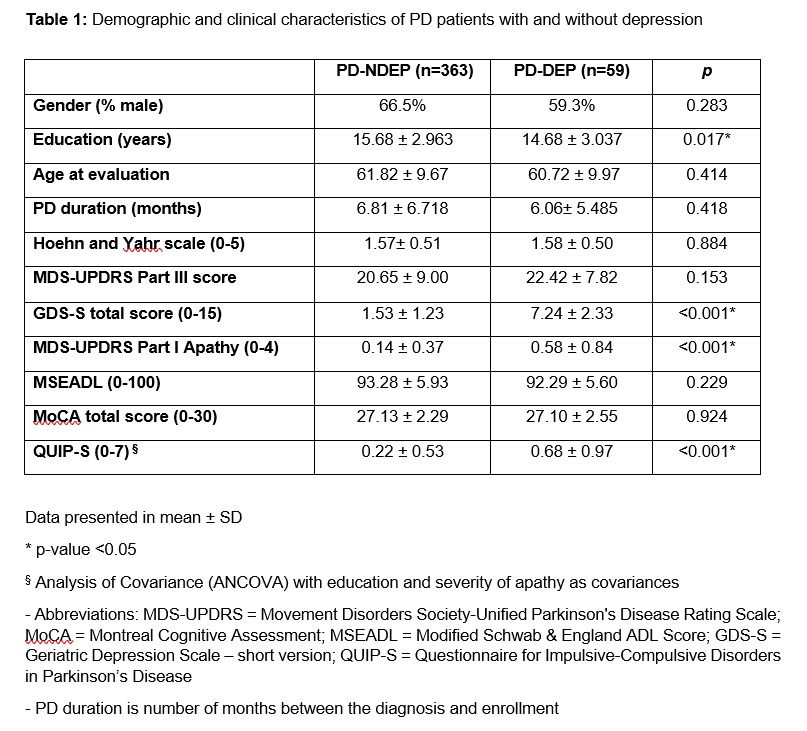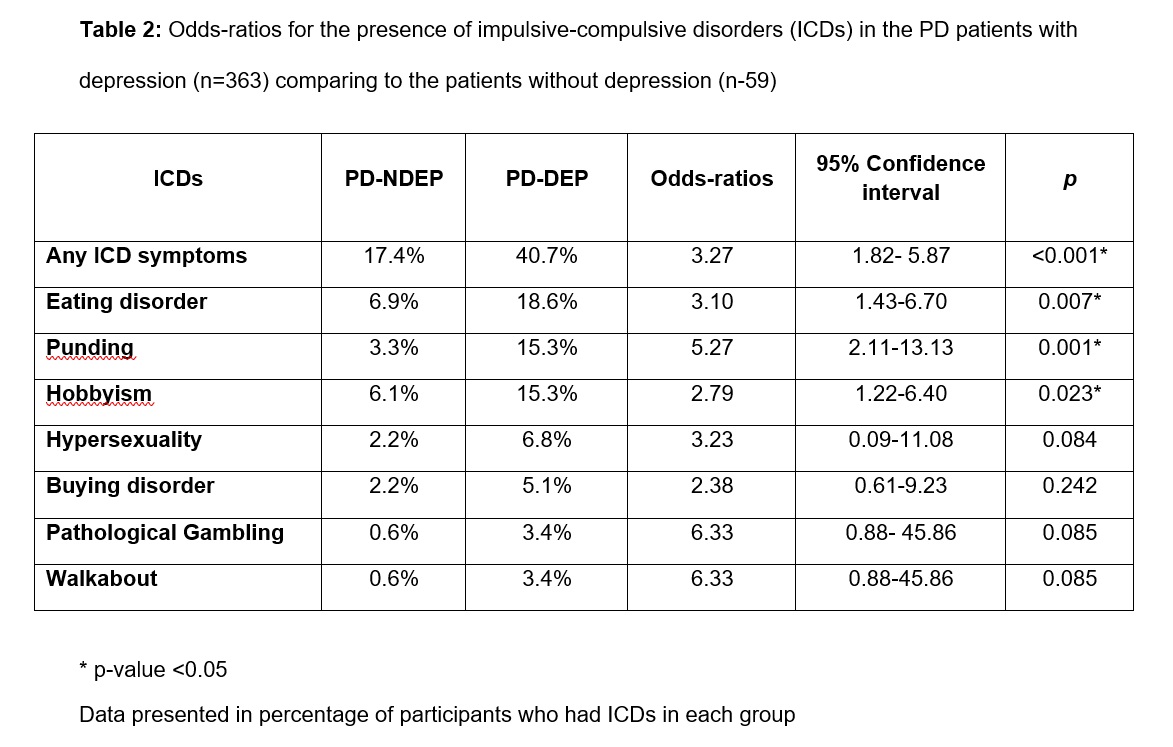Objective: To determine the association between depression and impulse control disorders (ICDs) in patients with Parkinson’s disease (PD).
Background: Depression is one of the most common disabling non-motor symptoms in PD. ICDs is reported to be associated with dopamine agonists treatment. However, an association between depression and ICDs in drug-naïve PD patients with early stage of motor symptoms has never been studied in previous literature.
Method: From the Parkinson’s Progression Markers Initiative database, 422 drug-naïve PD patients were classified into the PD without depression group (PD-NDEP; n=363) and PD with depression group (PD-DEP; n=59) based on the short form of Geriatric Depression Scale with score ≥ 5 points as the cutoff for depression. The shorten version of Questionnaire for Impulsive-Compulsive Disorders (QUIP-S) in PD was used to assess the presence of various ICD symptoms including pathological gambling, hypersexuality, buying disorder, eating disorder, hobbyism, punding and walkabout.
Results: The prevalence of ICDs was found in 21% of drug-naïve PD patients in this cohort. Controlling for age, gender, level of education, duration and severity of motor symptoms, disease stage and level of apathy, the PD-DEP group had significantly higher ICDs score than the PD-NDEP group with mean QUIP-S ± standard deviation of 0.68 ± 0.97 and 0.22 ± 0.53 (p<0.001), respectively [table1]. Among the PD-DEP group, 41% (24/59) of patients had at least one ICD symptoms while only 17% (63/363) of the PD-NDEP group did with an odds ratio (OR) of 3.27 (confidence interval (CI) 1.82-5.87, p<0.001). The prevalence of eating disorder (OR 3.10, CI 1.43-6.70, p 0.007), hobbyism (OR 2.79, CI 1.22-6.40, p 0.023) and punding (OR 5.27, CI 2.11-13.13, p 0.001) were significantly higher in the PD-DEP group than in the PD-NDEP group while there was no difference in the prevalence of pathological gambling, hypersexuality, buying disorder and walkabout between the groups [table2].
Conclusion: In drug-naïve PD patients, depression is associated with an increased prevalence of ICDs. Therefore, it is important to screen for ICDs in PD patients with comorbid depression even in the early stage of motor symptoms.
To cite this abstract in AMA style:
A. Karukote, S. Thakolwiboon, P. Julayanont. Association between impulse control disorders and depression in drug-naïve Parkinson’s disease [abstract]. Mov Disord. 2020; 35 (suppl 1). https://www.mdsabstracts.org/abstract/association-between-impulse-control-disorders-and-depression-in-drug-naive-parkinsons-disease/. Accessed February 19, 2026.« Back to MDS Virtual Congress 2020
MDS Abstracts - https://www.mdsabstracts.org/abstract/association-between-impulse-control-disorders-and-depression-in-drug-naive-parkinsons-disease/


